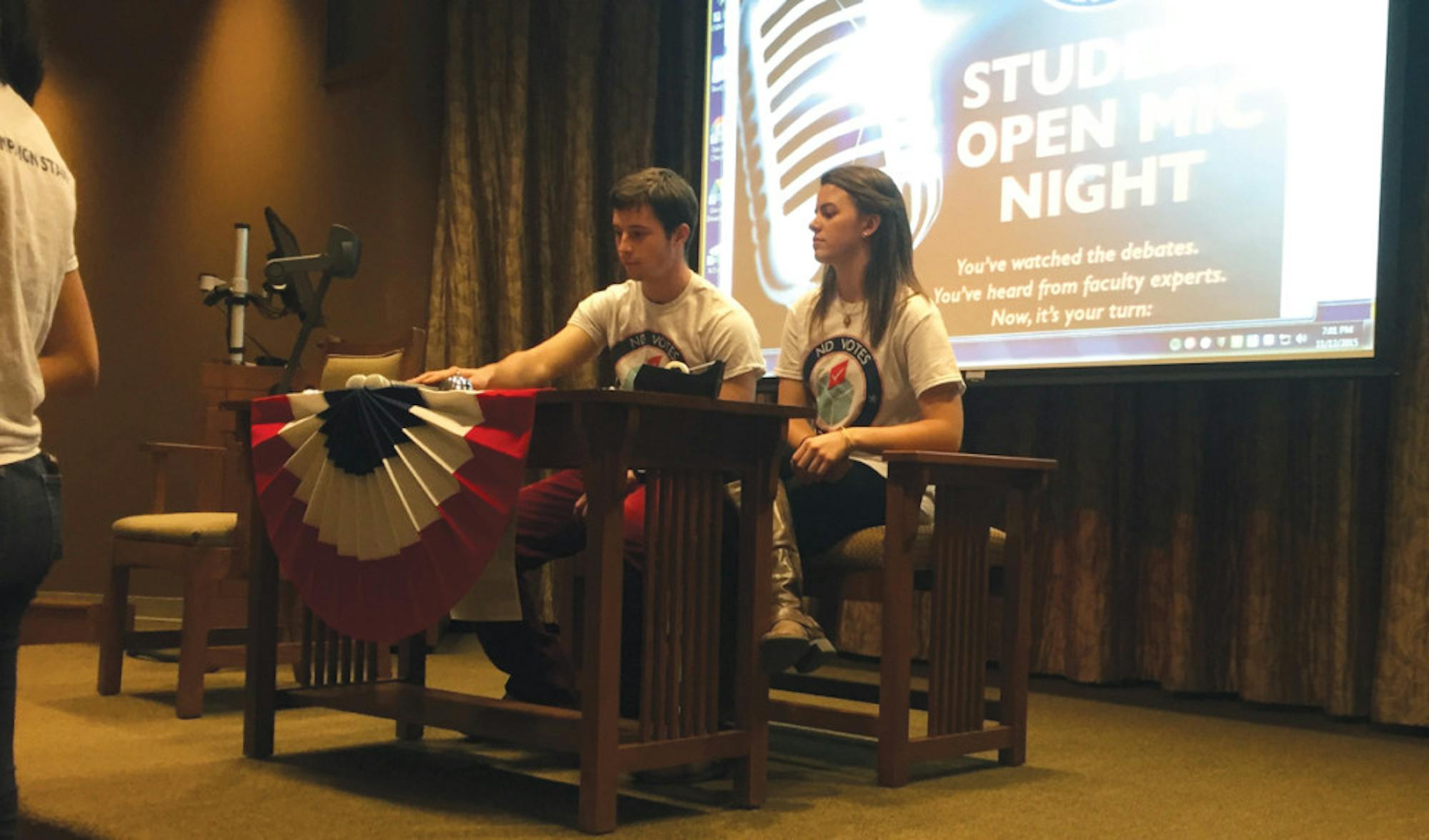Thursday night in Geddes Hall, NDVotes '16, a student task force aimed at increasing political engagement, hosted an open mic night. The goal of the forum, according to NDVotes member and event moderator Nikki Steiner, was to allow students to express their views on the upcoming election and the political process.
“We wanted to hear what the students care about on campus and what they wanted to see from candidates in the upcoming 2016 election,” Steiner said. “We wanted to give them a voice and hear what they care about.”
Freshman Prathm Juneja opened the discussion by bringing up issues of voter apathy and lack of voter education.
“It really concerns me that we have students who are unaware and uninvolved,” he said. “Students will automatically align themselves with a political party without knowing anything about politics.”
Task force co-chair sophomore Roge Karma echoed Juneja’s views and said voter participation is essential to the political process.
(Editor’s note: Roge Karma is a viewpoint columnist for The Observer.)
“It is almost a responsibility to be politically aware and politically involved,” he said.
Karma said youth are not "inherently apathetic.”
“When there is a candidate that inspires people, the youth come out to vote,” he said.
Sophomore Ariana Zlioba said when young people are involved, they can have an impact in the political process.
“If you look back in history, from the revolutions in the 1800s up until Vietnam, the people leading discussions and the people asking the hardest questions were always young people.” Zlioba said. “They were people who were idealistic and passionate enough to incite change when no one else wanted to.”
Juneja said student apathy toward political participation is closely tied to the education system.
“Not once was I told how to vote,” Juneja said. “[Nor was I told] about news sources, or about the views of the political parties.”
Sophomore Cassi Hayes said apathy stems from a larger disillusionment with the political process.
“Money and big corporations and lobby groups seem to run so much of [our political process],” she said. “[One] of the reason young people aren’t fighting for a better system is because they feel they don’t have power.”
Zlioba said politicians’ attitudes towards compromise often make agreement across the aisle impossible.
“The problem is that politicians are associating their unwillingness to compromise on principles with unwillingness to compromise on issues,” she said.
This polarization is not as prevalent in American homes as one might believe, freshman Abby Ferguson said.
“People are more moderate than they think they are,” Ferguson said. “Politicians are becoming more polarized.”
An explanation for this phenomenon was offered by Hayes, who said politics doesn’t reward people for being moderate.
“This mentality encourages a system [that] doesn’t necessarily reflect the views of the American people,” she said.













